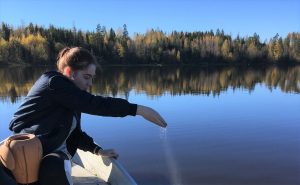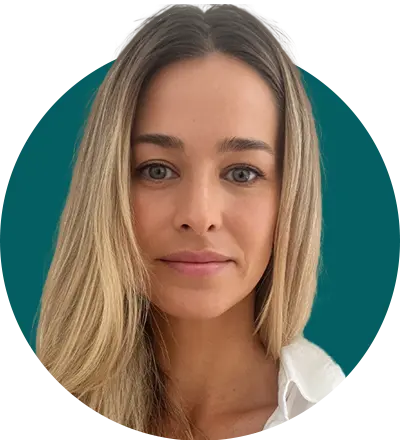There are actually no rules when it comes to funerals or memorials. All a memorial really needs is family and friends gathered to celebrate a loved one’s life. The rest is up to you.
Cremation is a very popular method of final farewell in Australia. In fact, more than 70% of deaths in Australia will end in cremation. The advantages of cremation are significant. Not only are they much more affordable, but they provide much more flexibility for families wanting to place a loved one’s final remains outside of a cemetery.
Often the most difficult decision for families is to decide on the right method of final farewell for their loved ones. “When families are making their choice of the urn,” says Sherri Hauer, the vice president of products & services at Forest Lawn Memorial-Parks & Mortuaries, “it’s important that they have a sense of the loved ones they are celebrating.”
The most important thing to keep in mind when planning a ceremony when someone is cremated is the nature of the person being farewelled and the nature of their relationship with the ones saying goodbye. This guide will take you through some of the options available for memorials and also provide some tips for planning.
Traditional funeral service
Many families choose to have a traditional funeral service with the coffin present before the cremation. However, what some people may not be aware of is that it is also possible to arrange a traditional-style funeral with an urn present instead, after the cremation. This type of service is commonly referred to as a memorial. It provides the flexibility to proceed at a pace that is suitable for your specific needs and preferences.
A Bare Funeral Service can help remove the stress of planning a funeral or memorial. Our team will help organise everything, from the venue, to slideshows and catering.
After the funeral service, you will still need to decide on final placement of the ashes. In some instances this allows for a more intimate ceremony, often where family alone attend.

Tree planting ceremony
An increasingly common form of final farewell is a tree-planting ceremony. Trees represent life, and using your loved one’s cremated remains to help give life to a tree is seen by many as a way to create an enduring, living memory. This is particularly appropriate for anyone who had a strong affiliation with nature, or for families who would feel most connected to their loved one in nature.
In a tree-planting ceremony, cremated remains are placed in a biodegradable urn, covered in a supporting root protect formula, and then planted alongside a young tree in the ground. The tree will grow, infused with the ashes of your loved one, creating an enduring memory that can always be revisited.
In many instances, the tree planting ceremony itself is attended by close family and friends, and can involve eulogies, prayers, memories and celebration of the deceased person’s life.
Ashes scattering ceremony
The advantage of Bare Cremation is the ability for families to scatter ashes anywhere that is significant to them. This may be a family property, a favourite bush walk or a regular holiday destination.
In most cases, families choosing an ashes scattering ceremony will use specially designed scattering urns that will allow everyone to release a portion of the cremated remains during the ceremony. In some cases, more than one ceremony is held, with ashes scattered in more than one place of significance.
Scattering at sea
Just as you can have a burial at sea, you can also have a scattering at sea. This is particularly appropriate for people with a strong affinity for the ocean, or for families tied together by a love of the water.
You have probably seen people pouring the ashes to the water from a boat or ship. However, there are numerous more accessible ways of having sea scattering.
The most common method is to use a biodegradable water urn. These urns contain the ashes of your loved one, and will float for a while before beginning to dissolve and release the ashes. Often while the urn is floating final words are spoken and, in many instances, families will return to the place of release on special occasions.

The freedom to ‘go your own way’
Tradition tells us that when someone dies, the family needs to organise a funeral service straight away, in honour and celebration of their life. This usually takes place within a week of passing and whether in a church or a funeral home this service usually follows a prescribed format and is quite formal in nature. However, you are not required a formal funeral service if you don’t want to. Just as each of us are unique, a farewell to a loved one can reflect that uniqueness.
For more ideas on ways to create a personalised memorial for your loved one, read our articles on 10 Alternatives to a Traditional Funeral Service.
What ceremony is ideal for you?
When planning a memorial ceremony after a Bare Cremation, the most important aspect you should consider is what would the deceased have loved for their final farewell? In all cases, further elements of personalisation can be added to ensure the ceremony is perfect for both your loved one and your family.
We hope this article on planning a memorial service with a cremation will help give your loved one the ceremony they deserve. For more information, our Complete Guide to Cremation offers a step-by-step explanation of the process. It answers the common questions about cremations to help you and your family make the decision that’s right for you when it comes to planning a cremation.
More information on grief support is available on the Bare website, including our article Experiencing grief on the death of a loved one. We would be honored to assist you in organising a meaningful farewell for your loved one. Whether you prefer a traditional funeral service or a memorial-style service following a direct cremation, we are here to support you.
Visit our Bare website here, or call 1800 071 176.





.jpg)

